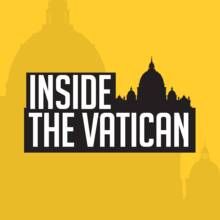On Dec. 18, the Vatican’s doctrine office—the Dicastery for the Doctrine of the Faith—issued a declaration called “Fiducia Supplicans” which opened the possibility for priests to bless same-sex couples and couples who the church considers to be living in what it calls “irregular” situations, for example, unmarried couples that live together and people who are divorced and remarried.
In this roundtable episode of “Inside the Vatican,” host Colleen Dulle, Vatican correspondent Gerard O’Connell and national correspondent Michael J. O’Loughlin dive into the Vatican’s declaration, examining its content, the initial reactions it prompted among bishops and laypeople, and what it might signify for the future of the church.
In the latter half of the episode, the three also discuss the unprecedented move by the Symposium of Episcopal Conferences of Africa and Madagascar to state that they “generally prefer” not to bless same-sex couples, and why Pope Francis has allowed them to freely express their discontent.
“I think what [Pope Francis] was trying to do,” Mike says, “was offer a way for priests to respond to concrete realities in a pastoral way, in creative ways, while also allowing people who aren’t quite ready to go down this road to maintain their catholic identity, to maintain their membership in this global communion.”
Links from the show
On “Fiducia Supplicans”
- Pope Francis allows blessings of couples in same-sex relationships
- US bishops, LGBT Catholics react to Vatican approval of blessings for same-sex couples
- Vatican decree on blessing same-sex couples gets mixed responses from bishops in Europe and Africa
- Vatican publishes defense of same-sex blessings document in rebuke to critics
- African bishops, with Pope Francis’ agreement, declare ‘No blessing for homosexual couples’
- How Pope Francis reconciled church teaching with blessings for same-sex couples
- Bishop Bonnar: Pope Francis’ vision of Gospel joy is key to understanding ‘Fiducia Supplicans’
- The Editors: Vatican document on same-sex blessings does not confuse church teaching—it deepens it
On Nicaragua







